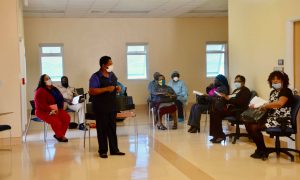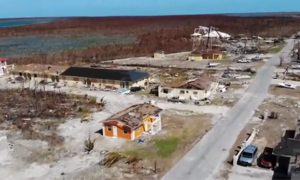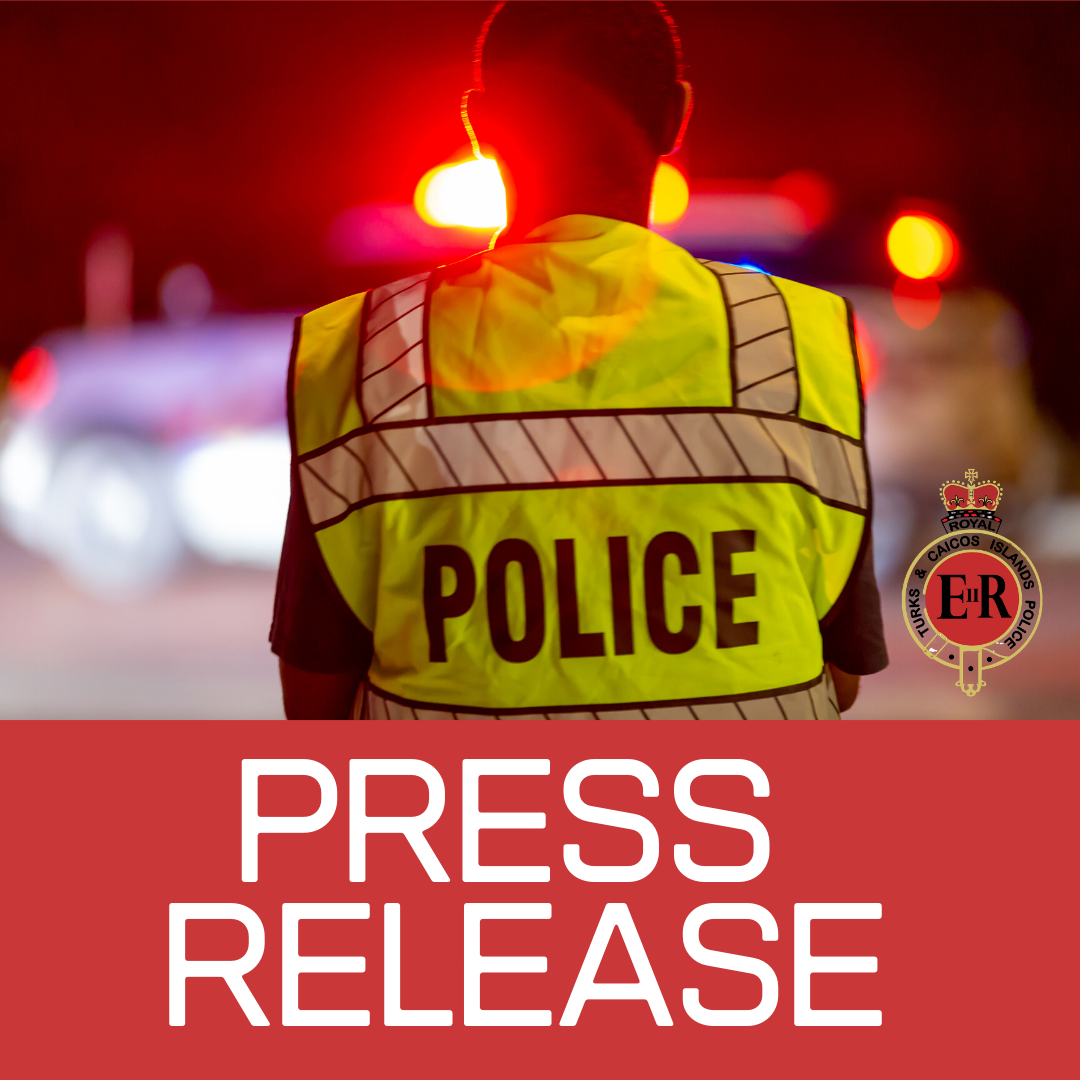NASSAU, The Bahamas – Inspectors attached to the Inspectorate Division of the Secretariat of the National Commission for Persons with Disabilities (NCPD) conducted assessments of the facilities at the Broadcasting Corporation of The Bahamas, and Bahamas Information Services, Tuesday (July 23) as part of their ongoing efforts to ensure that all public facilities, and those private facilities that provide services to members of the public, are accessible for all.
Both entities fall under the remit of the Ministry of Social Services, Information and Broadcasting as does the Secretariat.
The team was headed by Mr. Townsley Roberts, Deputy Executive Secretary, Secretariat of the National Commission for Persons with Disabilities, and included Mr. G. Michael Ellis, Senior Inspector; Mr. Wesley Paul, Inspector; and Mr. Thorne Clarke, Inspector.
Deputy Executive Secretary Roberts said the inspections were two-fold.
“Today we are inspecting ZNS and BIS which are both a part of the Ministry of Social Services, Information and Broadcasting to ensure that they are accessible because it is our belief that we cannot ask the public to do the things required by law without first ensuring that our entities are also in compliance,” Mr. Roberts said.
“People need to understand that accessibility to persons with disabilities is just as important as it is to persons without a disability. We want to be able to go about your day-to-day business without any obstacles in our way.
“What makes us disabled is the built environment, the barriers in front of us. If you remove those barriers, then we can do many of the same things persons without disabilities can do, and sometimes better. So this is what we are about. We are trying to make The Bahamas a place for all persons (and) where it will be comfortable for persons with disabilities to be able to manoeuvre through buildings and other spaces with the same ease and comfort expected by everyone else.”
The inspection team conducted assessments of wheelchair ramps, bathrooms, office spaces, and parking and reception areas, and measured doorway and hallway widths, in addition to other spaces to ensure that the requirements as set out in the Persons with Disabilities (Equal Opportunities) Act, 2014, are met.
Mr. Ellis, who spent 34 years as a member of the Royal Bahamas Police Force before retiring as a Senior Police Officer and who brings that same knowledge of the law to his new role, said the inspections help to ensure that the community of persons with disabilities enjoy the same rights to accessibility as any other citizen.
“Persons with disabilities, including those in wheelchairs, persons with walkers, crutches and those who use other assistive devices such as canes, should be able to move around just like everyone else,” Mr. Ellis said.
“We were looking to make sure that there were accessible bathrooms for both males and females, to ensure that there are proper ramps and that the ramps are the proper sizes, to ensure that all of the offices are accessible and all of the other areas are accessible for persons with disabilities.
“The Act says whatever we, as able bodied persons can do, a person with a disability should be permitted or allowed to do the same without any hindrance. Our job is to ensure that these facilities are in compliance with the Act.”
Once inspections are completed, Adjustment Orders are sent to those facilities/businesses found not to be in compliance with the Act, advising them of any faults, and providing a time-frame for compliance.
(BIS Photos/Anthon Thompson)
Release: Bahamas Information Services
PHOTO CAPTIONS
Header: – ZNS/BCB
Left to right:
1: G. Michael Ellis – Sr. Inspector (NCPD)
2: Thorne Clarke – Inspector (NCPD)
3: Townsley Roberts – Deputy Executive Secretary (NCPD)
4: Wesley Paul – Inspector (NCPD)
5: Carlton Smith – Chief Security Officer (BCB)
Insert: – BIS
Left to right:
1: Elcott Coleby – Director General (BIS)
2: Wesley Paul – Inspector (NCPD)
3: Townsley Roberts – Deputy Executive Secretary (NCPD)
4: Carlton Smith – Chief Security Officer (BCB)
5: Thorne Clarke – Inspector (NCPD)
6: G. Michael Ellis – Sr. Inspector (NCPD)


 Caribbean News1 week ago
Caribbean News1 week ago
 Caribbean News7 days ago
Caribbean News7 days ago
 Caribbean News1 week ago
Caribbean News1 week ago
 Caribbean News1 week ago
Caribbean News1 week ago
 Bahamas News7 days ago
Bahamas News7 days ago
 News7 days ago
News7 days ago
 Bahamas News1 week ago
Bahamas News1 week ago
 News7 days ago
News7 days ago
























